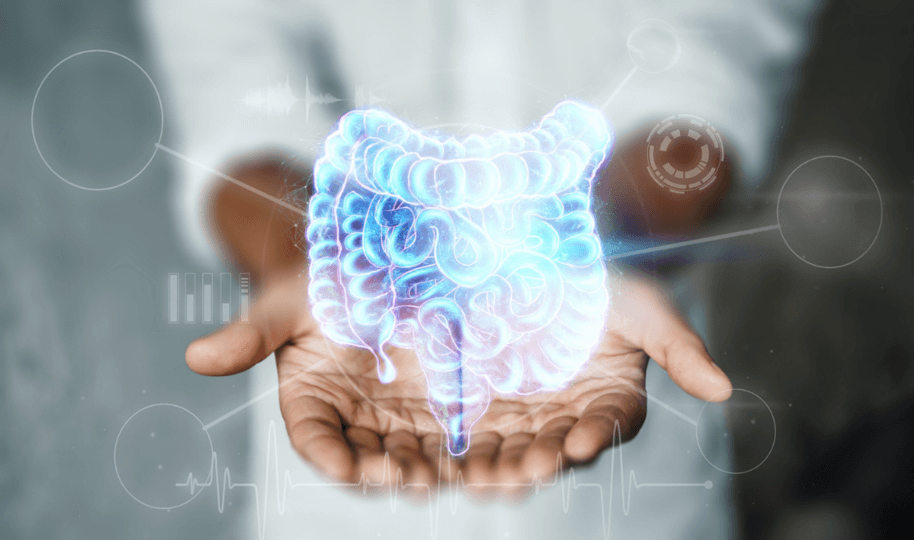
What is irritable bowel syndrome (IBS)?
Irritable Bowel Syndrome (IBS), is a functional bowel disorder which causes chronic or recurrent abdominal…

The term ‘gut-brain axis’ is popping up everywhere at the moment – but what is it? And why should you care? In this article, we explore what the gut-brain axis is, its relation to the vagus nerve and the link between your gut flora and mood.
The nervous system and the gastrointestinal tract communicate with one another through a network of pathways known as the gut-brain axis. The gut-brain axis is a two-way communication channel made up of multiple connections, including the vagus nerve, the immune system, and the bacteria that live in the gut1 which connects the emotional and cognitive areas of the brain with gut functions.2
The bacteria in the gut play a key role in the ability of the gut to ‘talk’ to the brain and vice-versa. The brain and gut can also signal each other through chemicals called neurotransmitters, and via the nerves – in particular the vagus nerve.3
How do the bacteria in your gut talk to your brain? The exact way this communication occurs is still being investigated by researchers but it is thought there are three ways it may happen:
The vagus nerve is the tenth and longest of the 12 cranial nerves. It carries a wide range of signals from the digestive system and organs to the brain and vice versa. The vagus nerve begins in the brainstem and travels down through the neck and chest into the abdomen. Because of its long path through the human body, it is known as the “wanderer nerve”.2
The vagus nerve plays a role in regulating internal organ functions, such as digestion, heart rate, and breathing rate, as well as reflex actions, such as coughing, sneezing, swallowing, and vomiting.2
The gut flora or microbiome, is made up of bacteria, viruses, fungi, and yeasts. This community of microbes starts to develop when we are born and continues for the first three years of our lives, however, it continues to be influenced by different environmental and lifestyle factors as we age.1
Studies undertaken on animals have found that changing the balance of bacteria in the gut can change brain chemistry, and the brain has powerful effects on gut bacteria, with studies showing that even mild stress can alter the microbial balance in the digestive system.5
Researchers are finding evidence that irritation in the gastrointestinal system may send signals to the central nervous system and brain that trigger mood changes.6
One of the main reasons that gut flora can have such a strong influence on mood is that they produce neurotransmitters like dopamine, noradrenaline, serotonin, and gamma-aminobutyric acid (or GABA)7 which are the chemical messengers also made in your brain that control mood and emotions.8
Changing the make-up of the gut flora using probiotics may help boost mood and cognitive function, and also have positive effects on stress and mild anxiety.8
Learn more here: Did you know probiotics may help your mood?